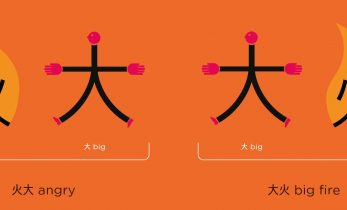Greater than 8 minutes, my friend!
Where Does Your Money Go When You Buy a Translation?
Most companies and people who need to buy a translation probably never ask themselves this question. Whether it is a personal document costing less than a hundred dollars, or a very large number of long documents such as legal contracts, patents, reports, or correspondence between unscrupulous, cagey sales people plotting how to skin consumers alive – there are times when all of these documents must be translated from a foreign language.
After all, I never ask myself, where does the money go when I pay for a book, a dinner in a restaurant, or for a car, although I probably should.
In “the translation industry”, the cash flow follows different, often circuitous paths, depending on which segment of “the translation industry” sells the translation to the end-client. I would say that the flow of money spent on translations depends to a large extent on the organizational structure and size of the company selling the translations to clients.
As a general rule, the amount of money that will in fact end up in the pocket of the translator who did all of the translating work is inversely proportional to the size of the translation company, typically a translation agency. The bigger the agency, the less money is generally paid to the translator. It is probably not an exaggeration to say that most of this money is spent on other people who earn their living in “the translation industry” food chain who, as it happens, are not translators.
Where Does Your Money Go When You Buy a Translation from a Large Translation Agency?
There are many people who are not translators and who work for large translation agencies, also called mega-agencies by translators. All of these people need to make money, although the business income is generated by the work of the translators, not by the work of other people working at the agencies, such as agency owners, lawyers, accountants, sales people, project managers and sales managers, and various kinds of other managers on different levels.
True, these people also contribute to the business’s smooth functioning, especially given that without their work, the translators might not have any work for themselves, with the possible exception of lawyers whose main task seems to be writing extremely long, intimidating, demeaning, nonsensical and often illegal Non-Disclosure Agreements, or NDAs. These NDAs are sometimes not really Non-Disclosure Agreements at all as they often specify things other than confidentiality, such as payment terms, and confidentiality of documents is mentioned only in passing.
The simple fact that if there were no translators to translate what needs to be translated, a translation mega-agency would only have expenses and no income whatsoever is hardly ever mentioned on the websites of mega-agencies.
My guess is that only about 30 percent of what customers pay for translations to mega-agencies is distributed as payment to translators, while the remaining 70 percent is swallowed by the other non-translating occupations, which could be called ancillary occupations. The owner of a mega-agency alone is of course paid millions mostly for owning the agency. I see him or her mostly as a huge vacuum cleaner constantly sucking up huge quantities of hundred dollar or Euro bills.
When there is more than one owner of a mega-agency, this often leads to major problems, even if (or perhaps especially if) there are only two owners who used to be happily married, or at least engaged, to each other. I used to work for the agency discussed in the linked article in the pre-internet era about 20 years ago when it was still a small operation paying good rates on time. But as it grew, over the years it became a poster child of a typical mega-agency that is hated both by translators and by smaller agencies for its greed and aggressive tactics. I stopped working for them about 15 years ago. The article linked above seems to confirm the truth of the saying that what goes around, comes around.
Because divorces are often messy and expensive, there are two schools of thought on how to deal with a messy and expensive divorce and why a divorce is often so expensive:
1) “It’s cheaper to keep ‘er” (it’s better to stay together no matter what in view of the cost).
2) “Divorce is expensive because it is worth it”.
I think it all depends on the circumstances. One thing for sure is that a lot of work of thousands of translators is needed to pay for such a messy business divorce, although this is probably the last thing on anybody’s mind (anybody’s with the exception of the hard working translators, of course).
So that’s where a lot of money made by translators may eventually end up as well – in the bottomless pockets of divorce lawyers.
Where Does Your Money Go When You Buy a Translation from a Small Translation Agency?
Some small translation agencies are virtually indistinguishable from their large brethren.
They basically mimic the predatory operating principles of large agencies and as a result, they are just as inimical to the interests of translators when it comes to things such as rates paid to translators and working conditions created for them.
But not all of them. Some smaller translation agencies are still trying as much as possible to continue the business traditions of translation agencies from the prehistoric pre-internet era and unlike mega-agencies, often believe in and practice very different business ethics.
A few smaller, usually highly specialized translation agencies pay somewhat higher rates than mega-agencies, and just as importantly, they try to pay quickly and treat translators as human beings rather than as obedient translating slaves.
One reason for this is that while modern translation agencies, and mega-agencies in particular, are usually owned by monolingual “entrepreneurs” who don’t understand what translation is about and who don’t give a damn about translators, translation agencies of the pre-internet era were often owned and run by translators or former translators who not only understood translation issues, but were also better able to identify with the interests of mere translators, although they too obviously strived to achieve the maximum profit.
It so happens that these two goals are not necessarily mutually exclusive, depending on how a translation business is run.
As a result, at smaller translation agencies, the translator’s share of the profit derived from translations is usually in the range of 40 to 60 percent, which works much better for the translators, and quite well for the person running the agency as well.
In the interest of full disclosure, I am stating here that like many translators, I wear two hats as I am both a translator and an owner of a very small translation business profiting from the work of other translators that I sell at a surcharge to direct clients to whom the rhetorical question in the title of this silly post is addressed.
Twenty years ago, I was mostly translating myself and the share of income that I was able to generate from the work of other translators in projects that I organized was relatively small. As “the translation industry” managed to successfully lower the rates being paid by agencies to translators such as myself, at this point I am more and more working mostly as a one-man translation agency. I don’t want to work for “the translation industry”, especially since it treats translators as easily replaceable cheap help.
But I still work for a few translation agencies operating based on the concept of the traditional small translation agency model mentioned above, and I am grateful to them for continuing the tradition of decent translation agencies before they were infected by the virus of the “translation industry” and for helping me pay my bills.
I think it is logical that as more and more experienced translators are reluctant to work for the new type of predatory translation agency model so prevalent in “the translation industry”, the result is that “the translation industry” is becoming more and more dependent on new, starting translators, also called “newbies”, and on translators living in third world countries with a much lower cost of living who may not necessarily be translating into their native languages, or who may be translating subjects that they are not familiar with.
Although the quality of a translation is often in the eye of the beholder, this trend is of course bound to have a detrimental influence on the quality of the translations that are produced in this manner by “the translation industry”, not to mention the horrible consequences of utilization of “language technology”, such as post-processed machine translation, a very popular trend in the modern “translation industry”.
And Where Does Your Money Go When You Buy a Translation Directly from a Translator?
Something interesting happens in this case: you as a customer pay less for the same thing that you are buying, namely a translation; while the translator gets more for the same thing that she is selling, namely a translation … which would seem to contradict the theory that “the translation industry” even has a right to exist.
Well, I think that it does have a right to exist, even if it is just a middleman, but not in the same form in which it exists today.
Translation agencies, the good ones anyway, do play a useful role because many translators, possibly the majority of them, simply don’t know how to connect with direct clients so that they could sell their translations to them, and many customers simply don’t want to bother looking for individual translators, especially since most of them are very hard to find on the internet.
But those translators who know where their customers are and who are able to figure out how to connect with them discover that they don’t need translation agencies. I have heard quite a few translators say the magic words, “I have never worked for translation agencies” and I can usually detect pride in the way the words are said, justified pride in my opinion.
Although translation quality is in the eye of the beholder, I think that a logical conclusion is that translators who work directly for clients pay more attention to these translations, simply because they are being paid more, if for no other reason.
It so happens that “the translation industry” cannot exist without translators because they are the ones doing the actual translating work and “the translation industry” is not able to translate, which would seem to indicate that even its name is a misnomer (hence the quotation marks).
But translators can exist without “the translation industry” and can do just fine, thank you very much. They can charge more for the same work, just like a house owner who is able to sell her house directly to a client without going through “the real estate industry” can make more money by selling the same thing, namely a house, to a customer who is paying less for the same thing, namely a house.
It should be said that the comparison of “the translation industry” to “the real estate industry” is an imperfect one: here in the United States, the most common commission that real estate agencies take when a house is bought and sold is 6 percent, while as mentioned above, in “the translation industry” this commission is generally in the range of 40 to 70 percent.





Great post, Steve! And I always say the same thing that translators CAN exist without agencies (especially without the bad ones), while agencies won’t survive without translators.
Yet, somehow, even despite our best efforts those mega-agencies that you describe seem to grow and prosper.
Do you think we (the translators) are the only ones to blame for it?
Not the only ones, for sure, but unfortunately, we do deserve the lion’s share of blame for that.
However, the fact is that most of our “professional associations” do little to protect translators, i.e. the profession, against the war waged on our profession by “the translation industry”.
This is in my opinion true in particular about the ATA.
Yes, I have similar feelings about associations too, but they’re just running a business (well, most of them do), so their main goal is to gain profit by selling memberships, advertisements and tickets to conferences and whatnot. Caring about the future of the profession doesn’t really generate revenue, does it? Of course, some of them do care about translators, but the business side of things always comes first, so I think we’re on our own and shouldn’t really rely on anyone but ourselves.
That’s why I believe that mega-agencies is largely our own doing. We work for them. We don’t know how to say no. We enable them to put price pressure on us. We let we dictate work conditions. We let them impose ridiculous NDA’s, etc.
We do all those things ourselves, without any help and I think it’s not getting any better. I wonder if translators will ever wake up and rise…
“Yes, I have similar feelings about associations too, but they’re just running a business (well, most of them do), so their main goal is to gain profit by selling memberships, advertisements and tickets to conferences and whatnot. Caring about the future of the profession doesn’t really generate revenue, does it?”
I believe that you are describing the problem perfectly. But the question is, if it’s just business for them, and they don’t really give a damn about what is happening to our profession, does it makes sense for us to still be dues-paying members?
Well, when you put it that way, it doesn’t make sense to pay the dues… and that’s why I’m not a paying member of any association. 🙂 I just can’t justify the cost. Maybe I’m missing out on something and someone would probably call me a blind fool, but I’m ok with that. The world needs blind fools who do things differently and swim against the tide (at the very least they’re very entertaining to watch) 🙂
I am mostly a member (of 2 associations) because I think it is probably more effective to clamor for change from within the association.
But it does not seem to be working much.